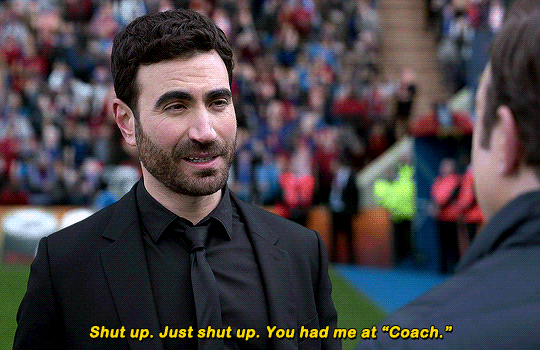“Hill House, not sane, stood by itself against its hills, holding darkness within; it had stood for eighty years and might stand for eighty more ... silence lay steadily against the wood and stone of Hill House, and whatever walked there, walked alone." — Shirley Jackson, The Haunting of Hill House (1959)
Shirley Jackson’s most defining work of terror fiction, The Haunting of Hill House, burgeoned a genre for a generation, informed future horror writers such as Stephen King, and was named in 2018 the scariest horror book of all time by a New York Times panel. It’s been adapted to screen twice. It’s parodied in Scary Movie 2. It’s been made into a stage play twice. Many have tried to evoke the unrelenting tension and uncomfortable intimacy of the novel to both success and failure
Mike Flanagan’s 2018 Netflix adaptation takes a gamble that might just rank it on par — or, dare I say, superior — to the faithful 1963 adaptation.
The original novel tells the story of four paranormal researchers investigating the ominous and titular mansion that has locals whispering and staff staying away after dark. Dr. John Montague leads the investigation, with a pair of women — Theodora and Eleanor — as the only two to respond to his ad for assistants. They’re joined by Luke, the heir to the Hill House estate and a noted skeptic of his home’s dark reputation. What results is several nights of unease and unexplained activity culminating in Eleanor’s apparent psychotic break as she becomes more and more obsessed with Hill House — either because of supernatural forces or her own emotional instability.
In Flanagan’s Netflix show, the dynamic between the characters is shifted significantly. Dr. Montague becomes Steven Crain (Michiel Huisman, Paxton Singleton), an author and amateur paranormal investigator who uses his childhood experiences at Hill House as fodder for a bestselling horror novel. Eleanor (Victoria Pedretti, Violet McGraw) and Luke (Oliver Jackson-Cohen, Julian Hilliard) are his twin younger siblings who have been most affected by their childhood trauma and closest to the reaching fingers of the house. Theodora (Kate Siegel, McKenna Grace) is their middle sister — still maintaining the character’s iconic lesbian status with a vengeance — with tactile empathic abilities that make her, ironically, a cynical and standoffish adult. Added to the cast of characters is their eldest sister Shirley (Elizabeth Reiser, Lulu Wilson), who becomes a mortician after an upsetting childhood experience at the house and two parents — their mother, Olivia (Carla Gugino), who falls into the thrall of the house and their father, Hugh (Timothy Hutton), who desperately tries to keep his family safe from the demons in their home.
This makes it possibly the loosest adaptation of the novel to date, but what it lacks in one-for-one transplanting it makes up for in completely on-point tone, scares that are incredibly close to home, and a brilliant blurring of lines between the ghosts of personal trauma and the possibility of something otherworldly. In short: Flanagan gets Hill House in a way that’s so spot-on that it doesn’t matter what time period the characters are in or what their relationship is to each other. We’ve seen that Hill House works as a purist piece. We’ve seen it fail in 1999 when mainstream trends get too involved with a time-honored story.
In Flanagan’s world, Hill House and all its spectres are less a threat than what the spectres represent. The ghost of the house’s past are a waxing group, collecting lost souls as the cabin fever of the place becomes all too real for some. Make no mistake: Hill House is a haunted, evil place. But the blatant supernatural nature of the mansion goes so hand-in-hand with the constant trauma the Crains endure that reality becomes metaphor before our eyes.
The house and its ghosts are the realizations of trauma: Olivia’s protective instincts twisting into a toxic maternity that creates the very future she was trying to avoid. Luke’s ghostly stalker at his back — quite literally — as he comes closer and closer to the temptation of his heroin addiction. Nell is haunted her entire life by the embodiment and future of her own depression. Steven becomes his own version of the house he was trying to suppress as he siphons his family’s tragedy into bestselling stories in an effort to distance himself. The “stomach” of the house offers a seemingly protective womb that quickly becomes a parasitic prison as Hill House refuses to let its inhabitants go — perhaps desperate for comfort or, as the character believe, more fuel for the negative emotions swimming there in a microcosmic purgatory.
It’s a look, at its core, of how a family can fall apart. How communication becomes so important when it’s severed, how trauma can divide a group of loved ones as much as it can bound them, how all we have is each other when the lights go out. It’s the story of a haunted house, in all the ways a house can be haunted.
It might not please the purists, its gamble of a happy ending may not go over well with avid horror fans, but the stories Netflix’s take tells are earned. Flanagan’s adaptation of The Haunting of Hill House is about the terror of a mirror — of looking at yourself, of looking at your past, and your fears for the future. It’s possibly the best piece of haunted house media in the recent decade, maybe even before. It should be counted among the best shows of the year and on par with the 1963 adaptation.
But see for yourself: The Haunting of Hill House is ready for binge-watching on Netflix now.























